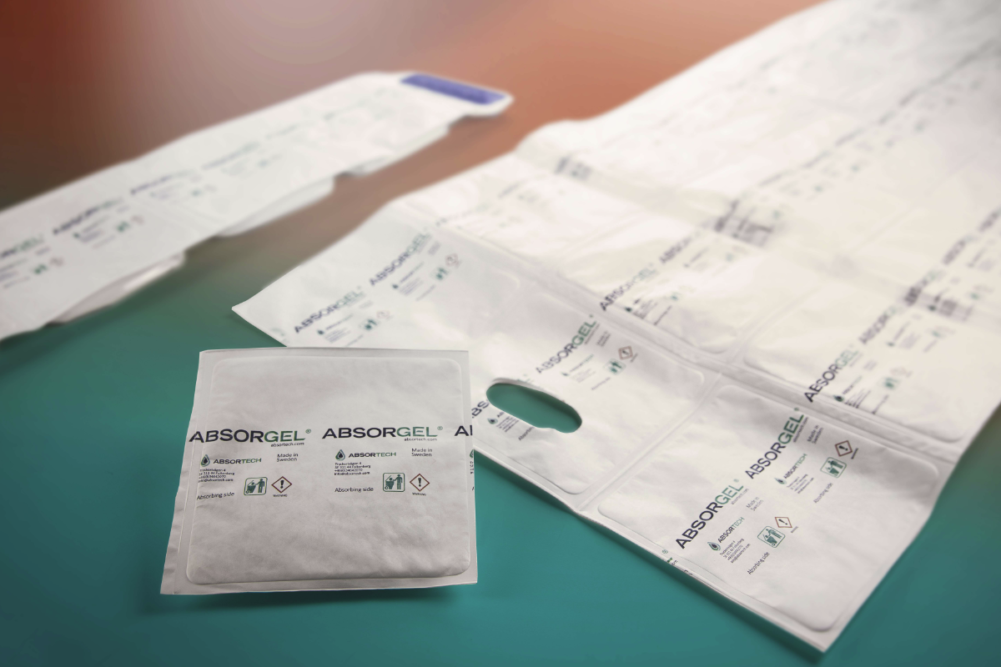FALKENBERG, SWEDEN — Swedish company Absortech uses a mix of calcium chloride and starch in its desiccants that can be used in containers carrying grains.
Desiccants protect the grains from moisture damage that can happen during transportation.
Containers are one of the most common ways to transport grains overseas. The conditions during these shipments are harsh, leading to many discarded shipments.
An empty shipping container contains several liters of water, because of the water in the air. It’s a threat to the grains, as the water condensates as an effect of temperature variations during transportation. These variations are due to different temperatures during daytime opposed to nighttime, and because of different climate zones.
Huge sums are lost annually due to grain damaged by moisture during transportation.
Absortech’s product is a potent desiccant that is fast to install and cheaper than other alternatives in the market.
“The cost of protecting a single container is normally less than $100,” said Ted Rotkirch, global segment leader for the agricultural sector at Absortech. “A small amount compared to the potential losses companies face if they don’t protect their cargo at all.
“Our desiccants are made of 94% calcium chloride as the absorbing agent, mixed with a starch to bind the moisture into a gel. Our mix absorbs about 10 times the amount of moisture that silica gel or clay absorbs. This means that a company currently using 60 kg of clay to prevent moisture damages, need only 6 kg of our desiccants. Installation time and costs will be lower because there will be less moisture absorbers to install, but it also translates into a reduction of plastic used.”
The use of desiccants during transport keeps the moisture at harmless levels for the grain.
Using Absortech’ desiccants instead of clay leads to a 60% to 80% decrease in plastic needed to protect the same amount of grain. If a company ships 5,000 containers a year, a shift to Absortech from clay would mean a decrease in plastic used equivalent to 250,000 (500 ml) PET bottles.






